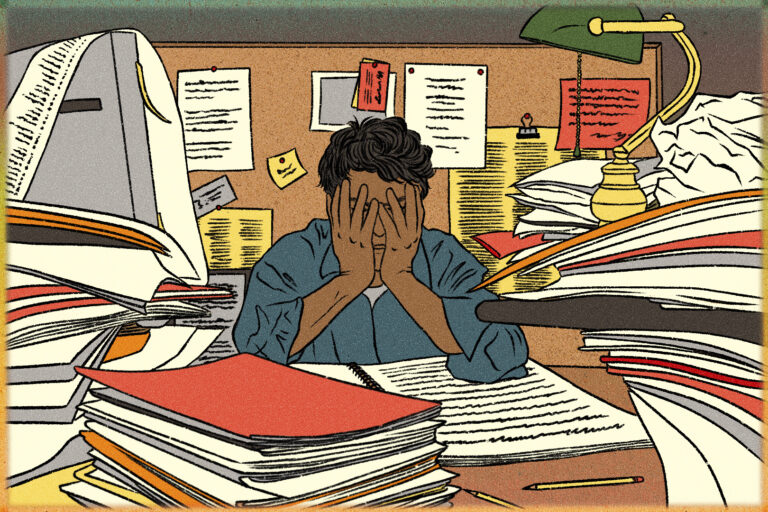
In popular culture, fathers are often portrayed as strong, stoic and endlessly reliable. But new research has outlined a different reality, one where fathers struggle too.
As an assistant professor of pediatrics at Rutgers Robert Wood Johnson Medical School, Kristine Schmitz spent years studying how parental mental health affects children.
Recently, Schmitz and her colleagues published a study in the American Journal of Preventive Medicine, revealing that children exposed to paternal depression around age five are far more likely to experience behavioral challenges in grade school.
The study analyzed data from the Future of Families and Child Wellbeing Study, a national birth cohort that tracked children and their parents from birth.
The investigation specifically focused on 1,422 fathers who were screened for depressive symptoms when their children were five years old, Schmitz told Newsweek. Four years later, when the children were nine, their teachers reported on their behavior.
“Children of fathers who were depressed around the time the child entered school were more likely to display behavioral challenges such as hyperactivity, oppositional behavior and ADHD symptoms,” she said. Essentially, when dads struggled, their children often did too.
The study used a standardized screening tool to identify symptoms of paternal depression, such as sadness, loss of interest in activities and low energy.

Renata Angerami
What mattered was not which symptoms the fathers experienced, but whether they met the threshold for likely depression.
One of the most surprising aspects of the findings was timing, Schmitz told Newsweek. Most previous research has focused on paternal depression during the postpartum period.
“Behavior problems were observed years later, when the children were nine, suggesting that paternal mental health continues to matter well beyond infancy,” she said.
Children facing emotional or behavioral challenges at this stage may struggle to build healthy peer relationships, which can affect their learning and self-esteem.
The impact of paternal depression on a child is significant, as depression can hinder a father’s capacity to interact positively with his child.
It may lead to less emotional support, more conflict at home or simply a lack of presence—fathers who are mentally unwell may become withdrawn.
“However, the pathways may differ due to differing parenting roles and societal expectations,” Schmitz said.
“While both are impactful, fathers have historically been less studied and less likely to be screened or supported, despite their equally critical role in a child’s development.”
Mothers and fathers often have distinct roles in a child’s life, and children may respond differently to each parent’s emotional state. The findings outlined that paternal mental health is just as critical as maternal mental health.
To address this issue, it’s essential to acknowledge the importance of fathers’ mental health.
Healthcare providers, including pediatricians and family physicians, should implement screening protocols for depression that encompass both parents, rather than focusing solely on mothers.
But it’s not enough to simply identify depression. Schmitz told Newsweek there’s a need father-specific interventions. “Programs should be accessible, father-friendly and designed with their voices heard,” she said.
In the end, addressing paternal depression is not just about helping fathers, it’s about supporting entire families.
When fathers are mentally healthy, they are better able to provide emotional support, model resilience, and build strong, loving relationships with their children.
Do you have a tip on a health story that Newsweek should be covering? Do you have a question about mental health? Let us know via science@newsweek.com.
Reference
Schmitz, K., Noonan, K., Corman, H., Nguyen, J. M., Jimenez, M. E., & Reichman, N. E. (2025). Paternal Depression at Kindergarten Entry and Teacher-Reported Behavior at Age 9 Years. American Journal of Preventive Medicine. https://doi.org/10.1016/j.amepre.2025.01.017




